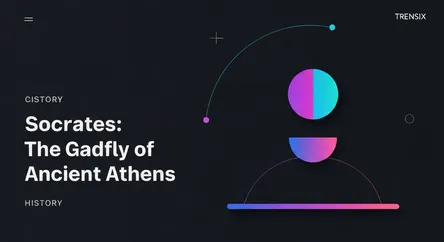History
Socrates: The Gadfly of Ancient Athens

Discover Socrates, the founder of Western philosophy whose questioning methods and ethical inquiries remain profoundly relevant in today's world.
What is it?
Socrates (c. 470–399 BC) was a classical Greek philosopher from Athens who is credited as one of the founders of Western philosophy. An enigmatic figure who wrote nothing himself, he is known primarily through the works of his students, Plato and Xenophon. Socrates is famous for his method of inquiry, the "Socratic method," a form of argumentative dialogue that uses probing questions to stimulate critical thinking and expose contradictions in beliefs. He famously claimed that his wisdom lay in knowing his own ignorance. His teachings focused on moral philosophy and the pursuit of a virtuous life, famously stating, "the unexamined life is not worth living."
Why is it trending?
Socrates' legacy endures because his emphasis on critical thinking is more relevant than ever in an era of misinformation. His method of questioning assumptions is a vital tool for navigating complex social and political landscapes. He is often referenced in discussions about civil disobedience and ethics, as he chose to accept a death sentence for impiety and corrupting the youth rather than abandon his philosophical mission. The Socratic approach is a cornerstone of modern education, particularly in law, to foster analytical skills.
How does it affect people?
Socrates' influence profoundly shapes modern thought and education. The Socratic method encourages people to question their own beliefs and engage in reasoned dialogue, which is fundamental to personal growth and a functioning democracy. His focus on ethics and virtue prompts ongoing discussions about morality and the "good life." By challenging individuals to think for themselves and scrutinize established norms, his legacy empowers people to seek knowledge and live more consciously, making his ancient wisdom a timeless guide for contemporary life.